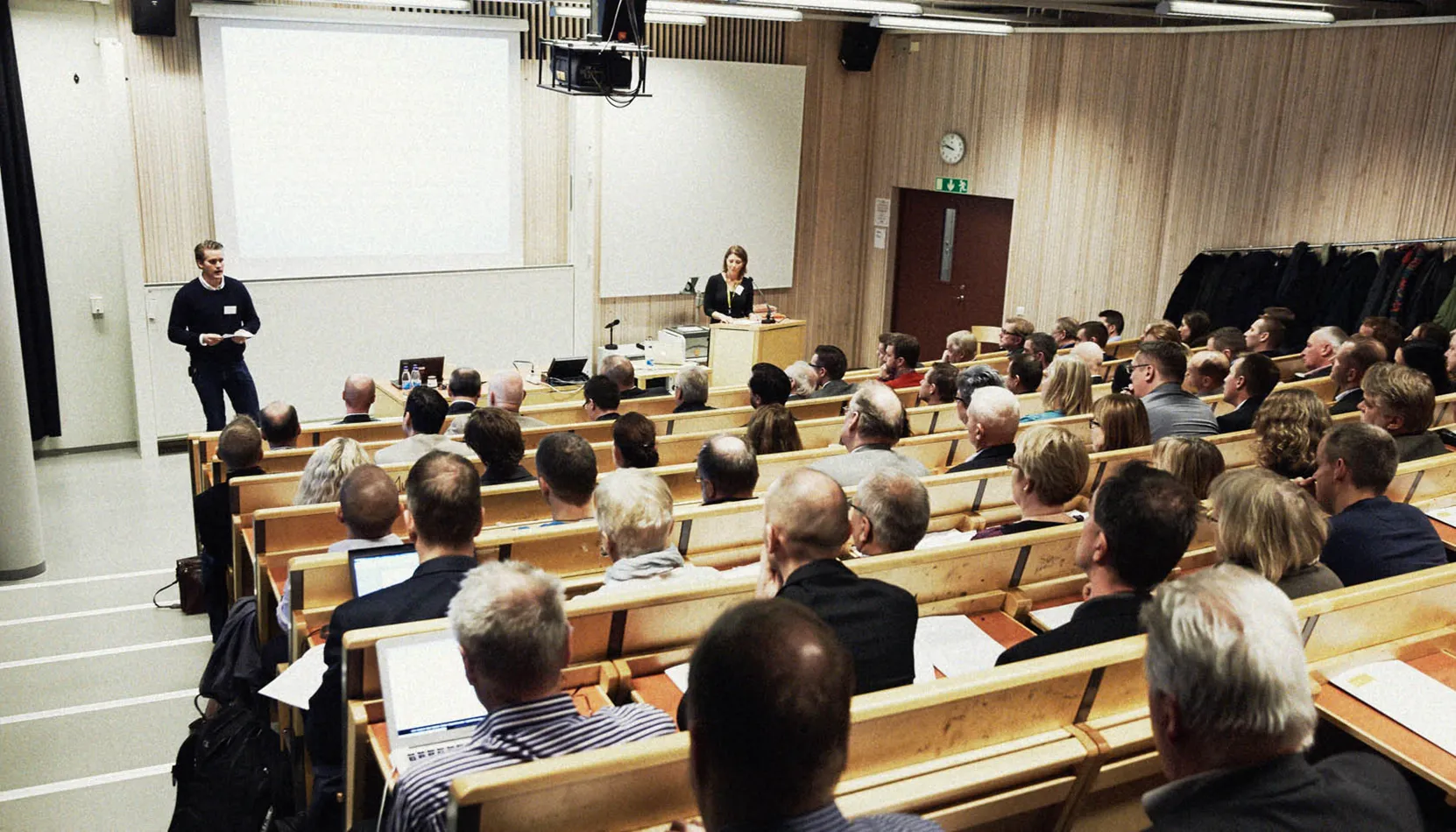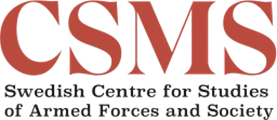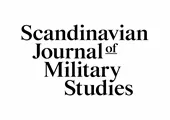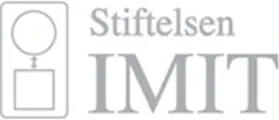CSMS regularly organizes conferences to promote the exchange of experiences between researchers and practitioners. The conferences include presentations of the research and development work carried out in the various sub-projects at CSMS.
The latest research conference was a collaboration between CSMS and ERGOMAS. We met in Stockholm on 1-5 July 2024, and information about the conference can be found here:
The 17th biennial ERGOMAS conference was held 1-5 July 2024 in Stockholm as a collaboration between ERGOMAS and the Swedish Centre for Studies of Armed Forces and Society.
17th ERGOMAS Conference 1-5 July 2024
in Stockholm Sweden
in Collaboration with the Swedish Centre for Studies of Armed Forces and Society
A “New Security Landscape” in Europe?
Challenges and Consequences for Military and Society
For many countries, the deteriorating security situation in Eastern Europe and across the Baltic Sea region has amplified the need to rethink defence strategies, collaborations, and organisation. Recent developments, such as the Covid-19 pandemic, Russia’s annexation of Crimea and subsequent invasion of Ukraine, along with economic instability, mounting challenges posed by influence campaigns and cyber attacks, along with problems of energy production and supply, have shown that no single alliance, organisation or nation can resolve such complex challenges alone. Recent years have also seen a shift in many countries’ security and defence policies and practices – Sweden and Finland’s decisions to apply for NATO membership being two examples of such change. In addition, countries across Europe and beyond continue to increase defence spending and to seek ways to improve civil defence and popular resilience.
For research, these developments raise questions about shifting relations between military organisations and their societies, as well as about their impact on technological development, military professionalism, popular support, issues of recruitment and retention, and on emerging forms of defence and security collaborations across national, organisational, and professional boundaries.
We encourage discussion in these areas, as well as other key topics of research in the military and society domain. The description of each working group, along with the contact information for the working group coordinators can be found at http://ergomas.ch/index.php/working-groups .
ERGOMAS Working Groups include:
- Morale, Cohesion and Leadership
- Public Opinion
- Mass Media and the Military
- Gender and the Military
- Military Profession
- Civilian Control of the Military
- Warriors in Peacekeeping
- Military Families
- Recruitment and Retention
- Military and Police Relations
- Violence and the Military
- Veterans & Society
- Military Conflict Management and Peace Economics
- Critical Military Studies
- Total Defence Force
More detailed information about ERGOMAS and the Working Groups can be found at the ERGOMAS website: http://www.ergomas.ch/
More information about the Swedish Centre for Studies of Armed Forces and Society (CSMS) can be found at: https://www.csms.se/om-csms
Presentation Formats:
The following types of presentations will be included in the conference:
Individual presentations: Stand-alone oral presentations based on original research or empirical inquiry (15 minutes in length). Note that the provision of the research papers to the conference organizers is not required unless requested by the respective WG coordinator.
Panel presentations: Panels will comprise 4 inter-related oral presentations. Abstracts for panel proposals should contain no more than 4 presentations (with a maximum of 200 words per presentation). The overall panel description, as well as the abstracts and names of the presenters for each component presentation must be included in the submission.
Practical details:
On Monday, July 1, there will be an opening ceremony with an ice breaker in central Stockholm.
The conference runs from Tuesday 2 July to the afternoon of Friday 5 July in Stockholm.
On Thursday evening there will be a joint conference dinner.
We recommend a hotel near the Stockholm Central Railway Station and Arlanda Express (the airport commute). Since the conference is held during a time when many tourists take the opportunity to visit Stockholm, we recommend that you book accommodation as soon as possible.
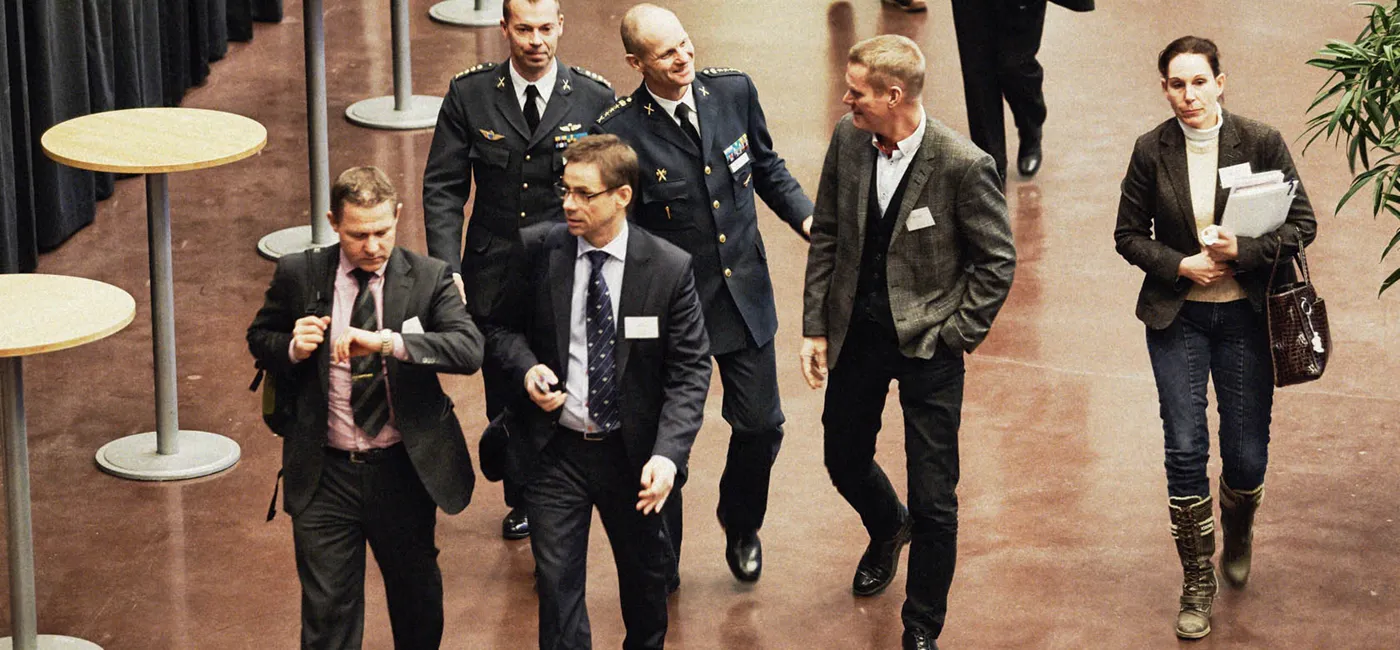 The Bengt Abrahamsson Award 2024 goes to Lieutenant General Dennis Gyllensporre
The Bengt Abrahamsson Award 2024 goes to Lieutenant General Dennis Gyllensporre
Conference History
The first conference on the topic of modern military professionalism was held in 2008. The background was a recognized need to highlight and illuminate military experiences from international service. The second conference in 2012 focused on professional competence and leadership in higher military positions. The focus in 2013 was on experiences from Afghanistan. The aim of the conferences in 2015 and 2017 was to highlight and problematize what a modern military profession looks like and how it operates in a democratic society. The 2018 conference dealt with the fact that the Swedish Armed Forces face several challenges and presented different ideas on how a modern defense force can be organized.
The 2022 conference focused on national defense, the war in Ukraine, NATO, and cooperation with the Nordic and Scandinavian countries. Parts of the conference were carried out in collaboration between the Scandinavian Journal of Military Studies and the Nordic Association for Research on Military Profession. The conference took place at Södertörn University in Stockholm. The conference invitation and program are published on the CSMS website.
The idea behind a recurring conference on modern military professionalism is to provide an arena for dialogue and exchange of experiences for military practitioners, researchers, decision-makers, and other stakeholders.
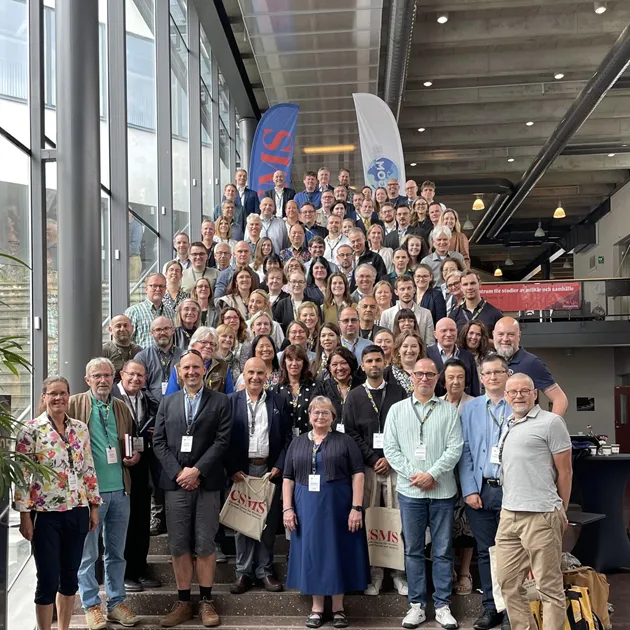
2024
A “New Security Landscape” in Europe?
Challenges and Consequences for Military and Society
For many countries, the deteriorating security situation in Eastern Europe and across the Baltic Sea region has amplified the need to rethink defence strategies, collaborations, and organisation. Recent developments, such as the Covid-19 pandemic, Russia’s annexation of Crimea and subsequent invasion of Ukraine, along with economic instability, mounting challenges posed by influence campaigns and cyber attacks, along with problems of energy production and supply, have shown that no single alliance, organisation or nation can resolve such complex challenges alone. Recent years have also seen a shift in many countries’ security and defence policies and practices – Sweden and Finland’s decisions to apply for NATO membership being two examples of such change. In addition, countries across Europe and beyond continue to increase defence spending and to seek ways to improve civil defence and popular resilience.
For research, these developments raise questions about shifting relations between military organisations and their societies, as well as about their impact on technological development, military professionalism, popular support, issues of recruitment and retention, and on emerging forms of defence and security collaborations across national, organisational, and professional boundaries.
An ERGOMAS conference in collaboration with the Swedish Centre for Studies of Armed Forces and Society (CSMS)
A conference program can be downloaded here.
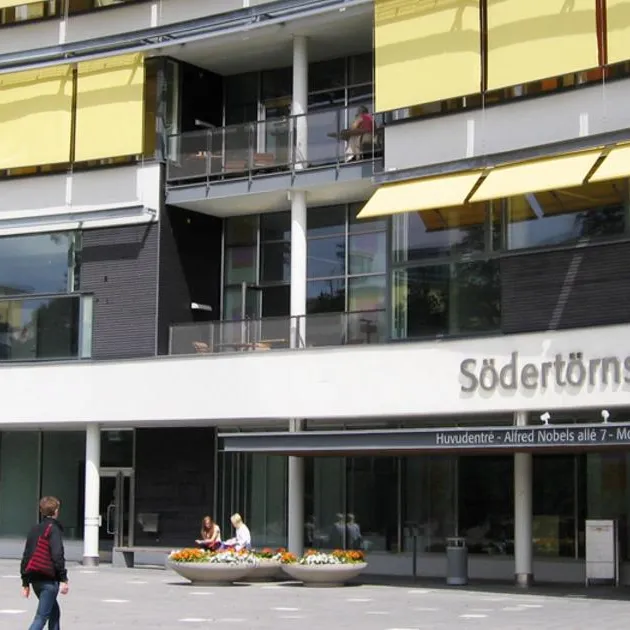
2023
NATO IN THE NORDICS
The conference was organized by the Scandinavian Journal of Military Studies (SJMS) & the Swedish Centre for Studies of Armed Forces and Society (CSMS)
With the Russian invasion of Ukraine in February 2022 and Sweden and Finland’s subsequent historical decisions to apply for NATO membership, nothing in Northern Europe’s security architecture is business as usual. The prospect of Swedish and Finnish NATO membership is imbricated with, among other things, profound implications for NATO Northern strategy and how cooperation among the Nordic countries in this new framework might look like – implications, which urgently call for scholarly attention and deliberation by the military studies community. The research front, here represented by both researchers and military practitioners, participated and discussed different themes on the subject.
Find the program here.
The collection of abstracts can be downloaded here.
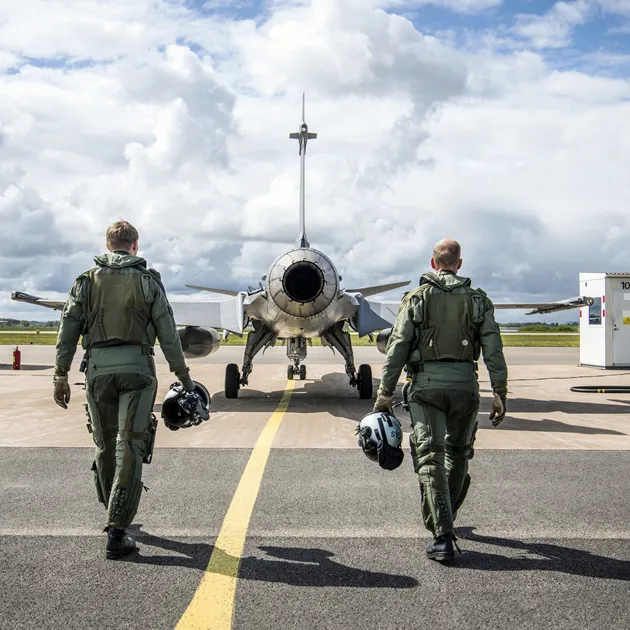
2022
The 2022 conference focused on national defence, the war in Ukraine, NATO, and cooperation with the Nordic and Scandinavian countries. Parts of the conference were conducted in collaboration with the Scandinavian Journal of Military Studies and the Nordic Association for Research on Military Profession. The conference took place at Södertörn University in Stockholm.
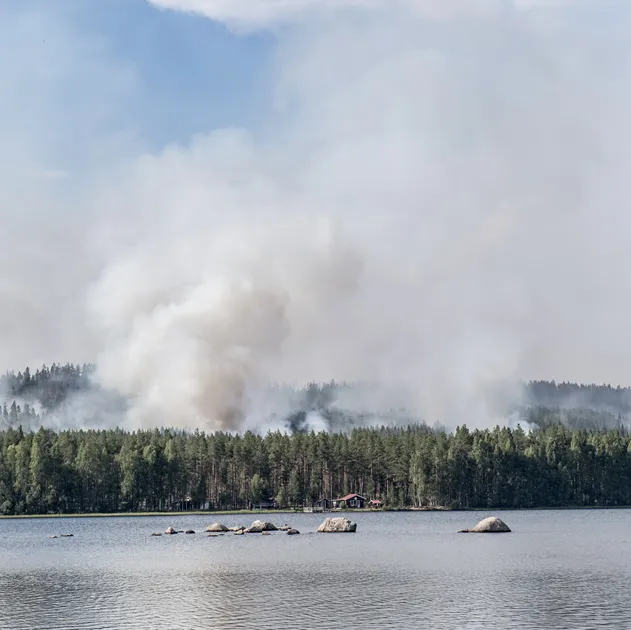
2018
In 2018, the Armed Forces faced several challenges. One is about solving the task they exist for here and now. Another is about organizational growth. A third challenge is to develop so that the organization meets demands and needs both today – and in the future. This needs to happen while daily operations continue uninterrupted. A fourth challenge is to do the aforementioned within the existing budget. So how should the formation of a new Armed Forces proceed? And how can past experiences and new conditions be combined into a functioning organization?
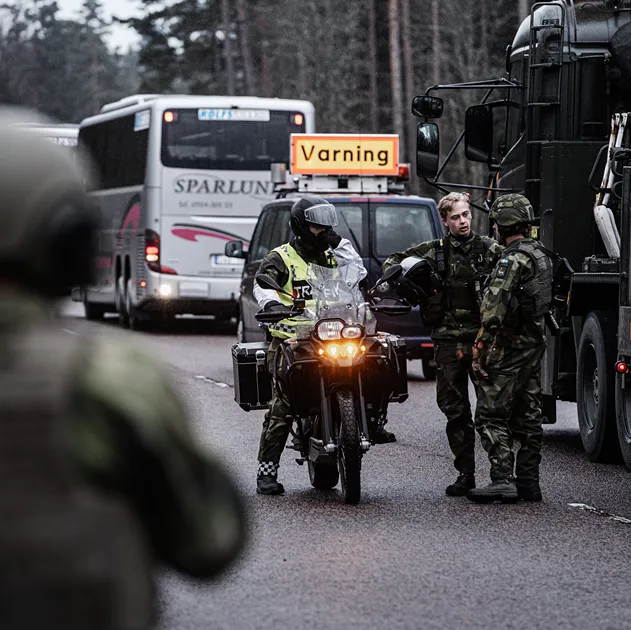
2017
What does modern military professionalism look like in a democratic society like Sweden? In our eagerness to understand and predict a world and future that seems both fleeting and uncertain, there is a risk that we do not learn from what we have experienced. How to train and prepare for the unexpected needs to be explored with the help of new perspectives. Therefore, this year's conference on Modern Military Professionalism has two themes: one is “Sweden's new security policy situation after Brexit/Trump” and another is “Armed Forces in transformation – from mission focus to national defence”
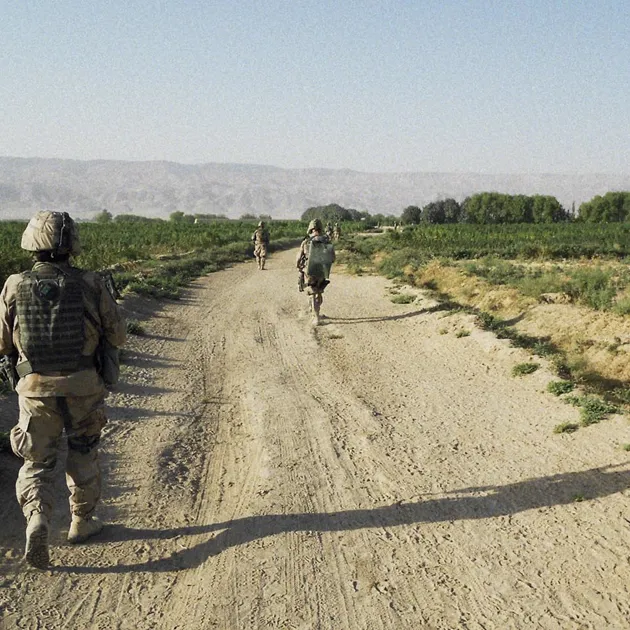
2016
A stage allows for the bringing together of people, conversations, and thoughts that would not normally meet. "Mission Afghanistan - images and stories from an international mission" is a documentary composition of authentic experiences made by soldiers and officers who have served in Afghanistan. What happens to our own perspectives when we take the time to acknowledge and meet others' experiences? What lessons do we have the opportunity to learn? What significance should they have for future military challenges, both national and international?
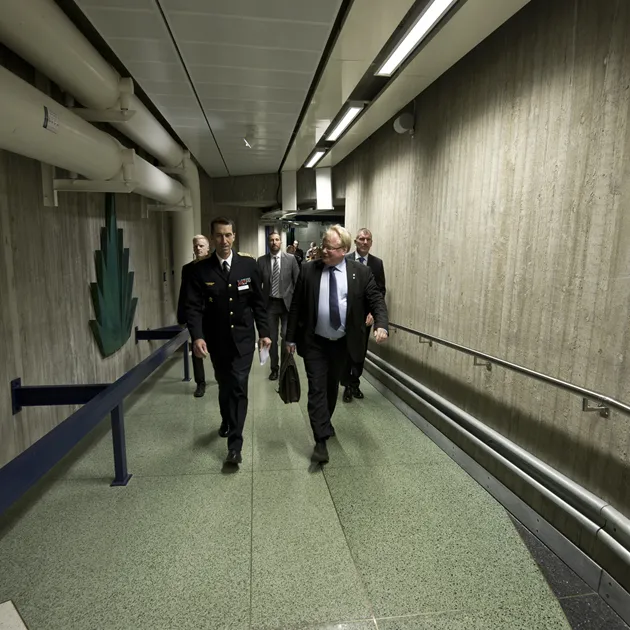
2015
What does modern military professionalism mean? What from the experiences of international missions is relevant to bring into the new? What do we need a defence for? The questions are urgent and current. Since 2008 - when the first conference was held - several external factors have changed. Threat scenarios, new security policy conditions, and organisational conditions shape how the Armed Forces meet and handle missions and challenges
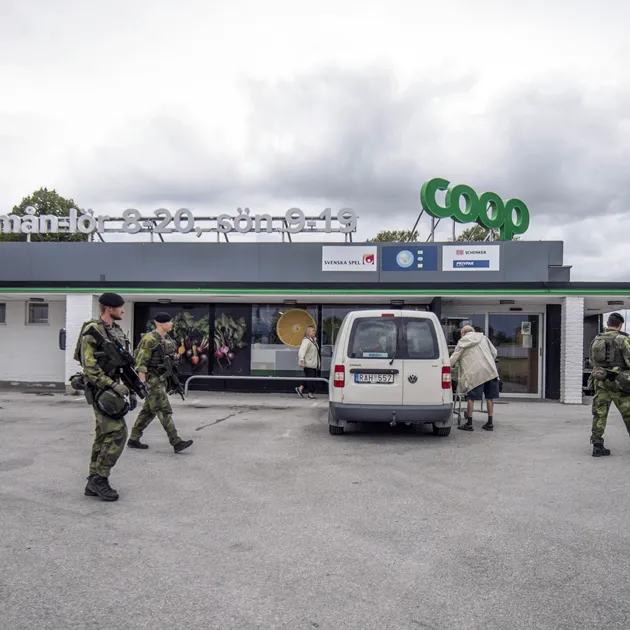
2014
The conference is organised by the Swedish Centre for Studies of Military and Society and is primarily aimed at personnel in the Armed Forces and researchers interested in defence-related research. The purpose is to offer an opportunity for discussion based on both theory and practice, this time focusing on changes within the Armed Forces concerning personnel supply. During the conference, some of the themes that are central to the research project Personnel Supply and Validation within the Armed Forces (at GRI Gothenburg Research Institute, School of Business, Economics and Law at the University of Gothenburg) are addressed
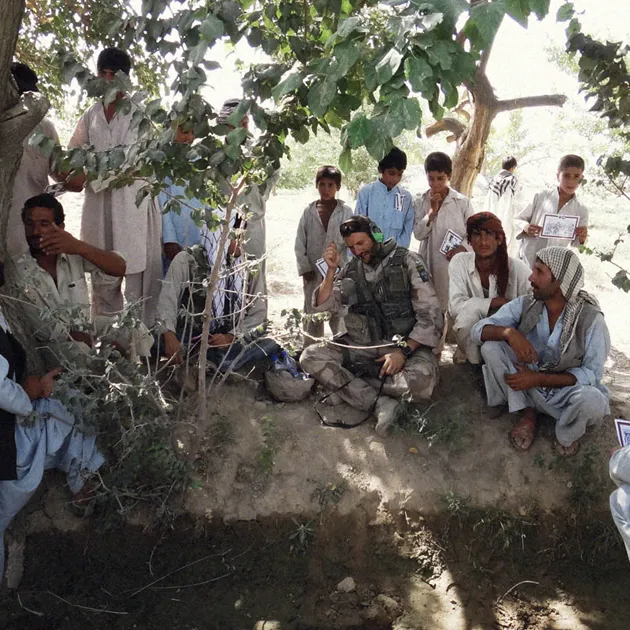
2013
Military experiences from Afghanistan - with a view to the future. When the Overseas Mission 2013 conference takes place for the third time, one of the Swedish Armed Forces' most extensive commitments is highlighted - Afghanistan. What experiences have been made by those who have been there? What lessons should be noted? And what knowledge is worth bringing into the future? The programme for the Overseas Mission conference 2013 is composed to highlight important issues to work on further and to promote the exchange of ideas and experiences between military professionals, decision-makers, and researchers
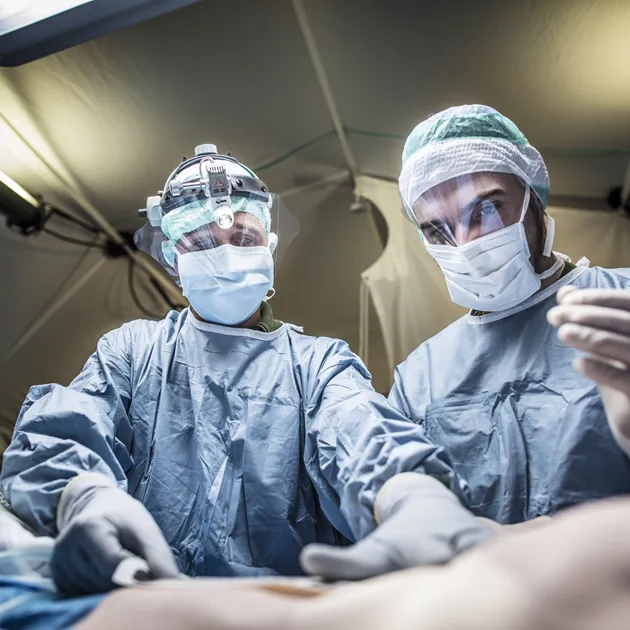
2013
This year's conference on defence and security-related research will be held on 23-24 September in Gothenburg. The conference is organised by the Swedish Centre for Studies of Military and Society and is primarily aimed at researchers with an interest in defence-related research and personnel in the Armed Forces. The purpose is to offer an opportunity for discussion based on both theory and practice, this time focusing on changes in the HR function, civilian merit value, profession, and validation.
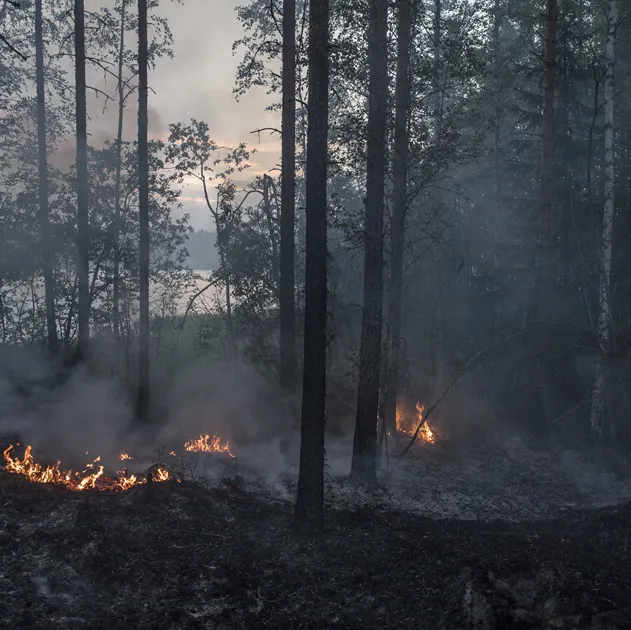
2012
The Swedish Centre for Studies of Military and Society invites you to a two-day defence research conference in Gothenburg. A presentation of the SOM Institute's annual report "Sweden at War" is given by researchers Joakim Berndtsson and Karl Ydén. Joakim Dahlman then presents "The Navy's need for human sciences - experiences from units and real operations". The conference is concluded by Joakim Berndtsson on the theme "Swedish officers and private security companies - career opportunity or competitor? International missions and the military market."
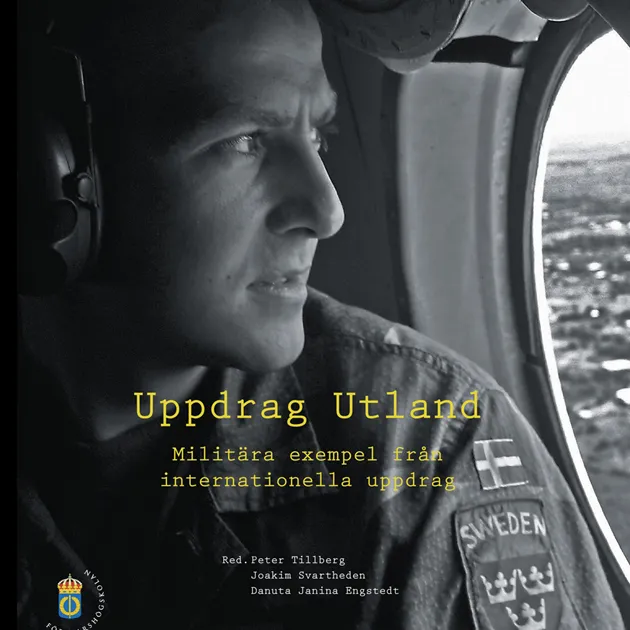
2008
In the book Overseas Mission - military examples from international missions, soldiers and officers reflect on various difficult situations they have encountered in international missions. The book serves as a starting point for the conference. The study that the experience project is part of has been a collaboration with the Dialogue Seminar's research environment at the Royal Institute of Technology, the department of professional knowledge and technology since 2001




